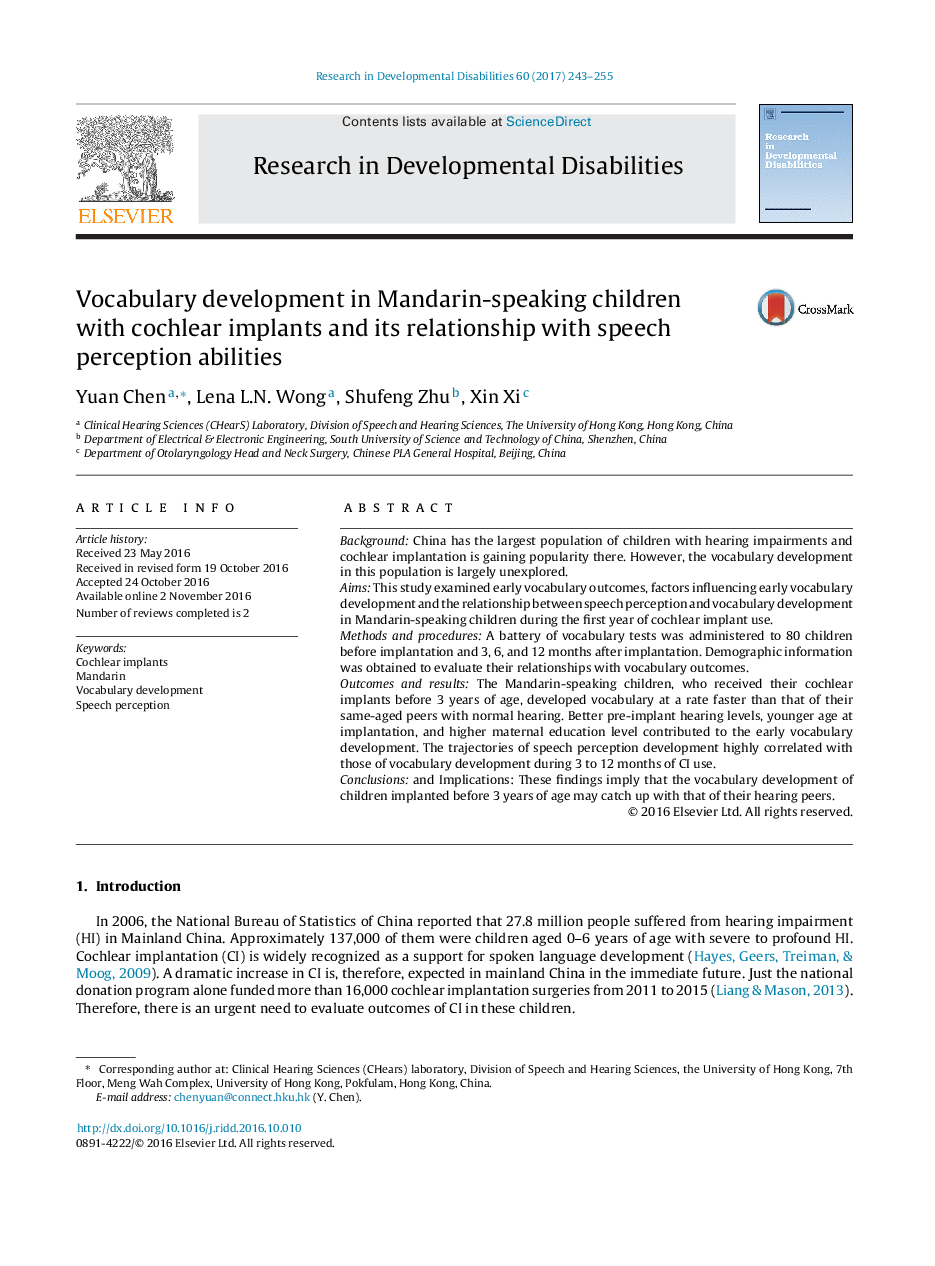| کد مقاله | کد نشریه | سال انتشار | مقاله انگلیسی | نسخه تمام متن |
|---|---|---|---|---|
| 4941032 | 1436631 | 2017 | 13 صفحه PDF | دانلود رایگان |
BackgroundChina has the largest population of children with hearing impairments and cochlear implantation is gaining popularity there. However, the vocabulary development in this population is largely unexplored.AimsThis study examined early vocabulary outcomes, factors influencing early vocabulary development and the relationship between speech perception and vocabulary development in Mandarin-speaking children during the first year of cochlear implant use.Methods and proceduresA battery of vocabulary tests was administered to 80 children before implantation and 3, 6, and 12 months after implantation. Demographic information was obtained to evaluate their relationships with vocabulary outcomes.Outcomes and resultsThe Mandarin-speaking children, who received their cochlear implants before 3 years of age, developed vocabulary at a rate faster than that of their same-aged peers with normal hearing. Better pre-implant hearing levels, younger age at implantation, and higher maternal education level contributed to the early vocabulary development. The trajectories of speech perception development highly correlated with those of vocabulary development during 3 to 12 months of CI use.Conclusionsand Implications: These findings imply that the vocabulary development of children implanted before 3 years of age may catch up with that of their hearing peers.
Journal: Research in Developmental Disabilities - Volume 60, January 2017, Pages 243-255
